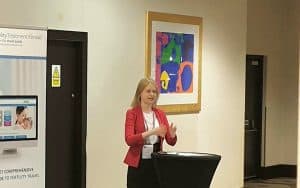29 August 2025
A Declaration of Parentage declares whether a named person is or is not the legal or biological parent of another person under English law. It can clarify and confirm parentage or alternatively, it can declare the removal of parentage for English legal purposes. Recently, there have been several cases involving Declarations of Parentage following legal disputes after unregulated sperm donation involving serial sperm donor Joe Donor, rushed licensed sperm donation and disputed co-parenting arrangements as well as disputes about whether a child was conceived naturally or by assisted conception. Added to this, applications for a Declaration of Parentage can be relevant when people seek to correct or re-register a birth certificate for a variety of reasons.
What Does a Declaration of Parentage Do?
A Declaration of Parentage declares whether a named person is or is not the legal or biological parent of another person under English law. As such, it can clarify and confirm parentage or alternatively, it can declare the removal of parentage for English legal purposes. A Declaration of Parentage therefore has relevance in a range of different situations, including:
- To resolve a paternity dispute concerning a baby or minor child.
- Resolve and confirm biological/legal parentage following a direct-to-consumer DNA test (e.g. after an at-home DNA test through AncestryDNA, 23andMe, MyHeritage).
- Correct a birth certificate (e.g. father’s details are missing, mother’s or father’s details are incorrect, add/remove a person’s details).
- Re-register a birth certificate following adoption to record a birth parent.
- Resolve biological and legal parenthood or rectify a birth certificate where a parent is deceased.
- Resolve legal parentage and birth registration for a transgender parent.
- Resolve problems with HFEA consent forms at UK fertility clinics (e.g. missing or errors), calling into question the legal parentage and birth registration of a non-birth parent for their child.
- Resolve a dispute about a child’s biological or legal father/second legal parent following conception (this can raise complex legal and evidential issues about circumstances of conception, personal relationships, DNA testing law, status and consent involving fertility and family law).
A Declaration of Parentage also has wide-ranging legal, practical, financial and emotional implications for individuals, parents, children and families and can inform:
- An individual’s birth registration.
- An application for citizenship and a passport.
- An individual’s personal identity and ancestry.
- Relationships with genetic and legal relatives.
- An inheritance claim.
- A financial claim for a child.
How Do I Apply for a Declaration of Parentage?
A Declaration of Parentage application is made pursuant to s55A of the Family Law Act 1986. The application is issued in the Family Division of the High Court or the County Court following completion of a C63 Court Form and payment of the court fee.
An application for a Declaration of Parentage can be made by any person and does not carry any age limits and so it can be made at any point in life or after death. It can be decided by the English Family Court provided the relevant jurisdiction criteria are met (there needs to be sufficient connection to England and Wales) and the applicant has sufficient personal interest in the determination of the application. The English Court can, however, refuse to hear the application if it decides that the determination of the application would not be in the best interests of the child.
The English Family Court will carefully consider the nature and context of an application for a Declaration of Parentage, its legal basis and supporting evidence. As such, each case is determined by the English Family Court on its own particular facts, meaning some applications will be more complex than others. It will usually list the case for a case management hearing (to review the basis of the application and make directions to progress the application) before listing for a final hearing. The court process can take anywhere from 3 – 12 months (although timescales vary depending upon the complexity of the case, whether it is contested by another party and court availability).
Click here to find out more about an application for a Declaration of Parentage.
Do I need DNA Evidence to Obtain a Declaration of Parentage?
DNA testing can provide helpful evidence in support of an application for a Declaration of Parentage in the English Family Court. However, scientific DNA test results are not always necessary in every case.
DNA testing can also raise a number of issues depending upon the nature, basis and quality of the testing undertaken (ancestry testing, paternity testing, extended family testing).
The English Family Court can make a direction for legally approved scientific DNA testing within court proceedings, but it cannot compel a party to undergo a DNA test. The court can, however, in appropriate circumstances draw inferences if a party refuses to comply with a direction for DNA testing in determining the case.
Click here to find out more about DNA testing within proceedings for an application for a Declaration of Parentage in the case of X v Y [2022] EWFC 77 – where Louisa Ghevaert Associates successfully obtained a Declaration of Parentage following the applicant’s 35 year quest to find her biological father, resolve her personal identity and add his name to her birth certificate.
Click here to learn more about the legal issues associated with DNA testing.
Recent Cases Involving Declarations of Parentage
You can find out more about recent cases involving applications for a Declaration of Parentage in our blogs and media commentary below:
The Risks of Unregulated Sperm Donation: Serial Sperm Donor Joe Donor.
A Cautionary Tale About Informal Sperm Donation: P c Q & F (Child: Legal Parentage) [2024].
Judicial Warning and Naming of Serial Sperm Donor ‘Who Fathered 180 Children’.
Rise in DNA tests being used to claim citizenship of other countries.
Specialist Fertility & Family Law Advice and Representation
Images: Louisa Ghevaert CEO & Founder Louisa Ghevaert Associates
To find out more about Louisa Ghevaert click here.







